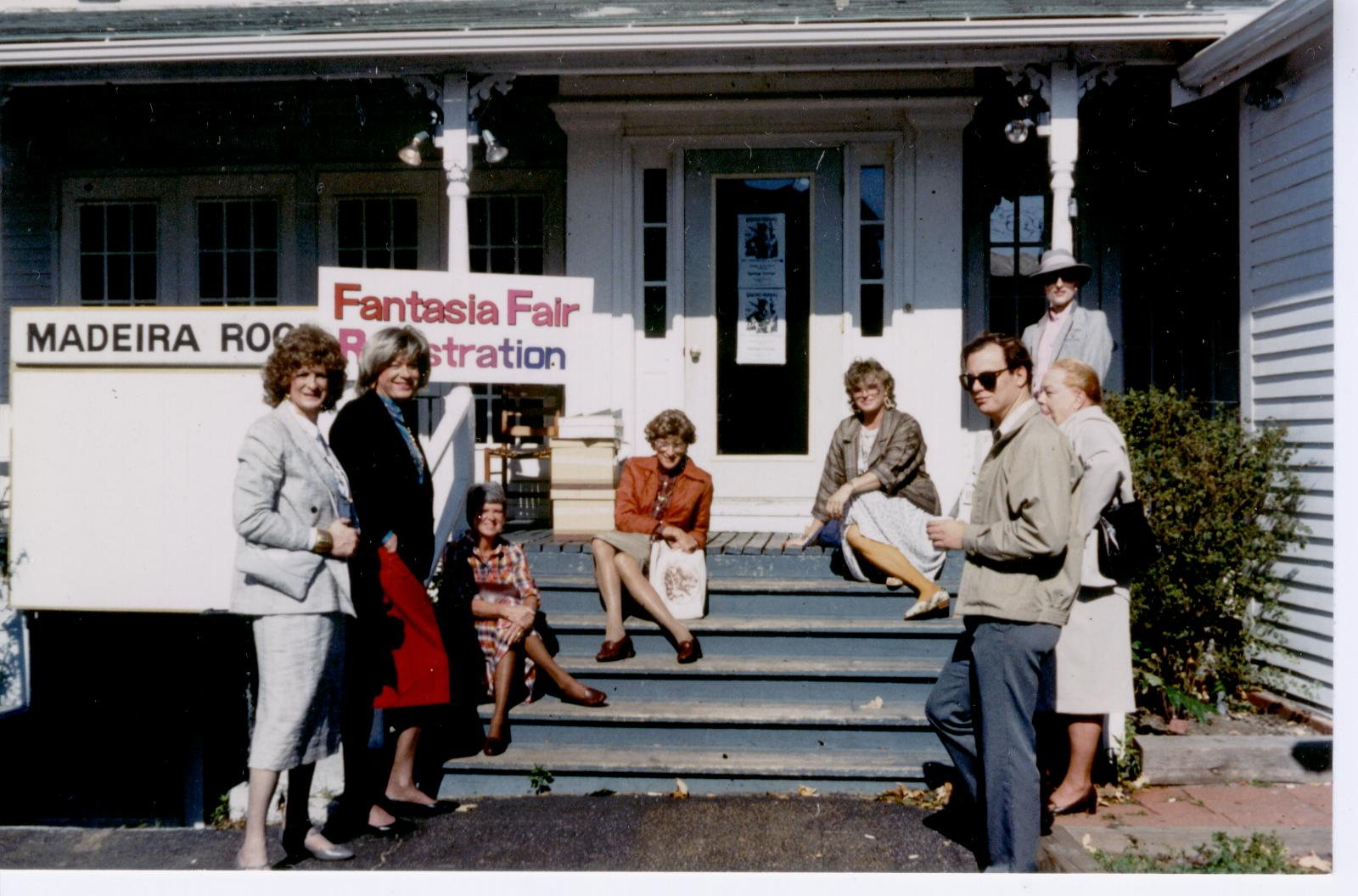FanFair Registration_1987
Courtesy of Dallas Denny
by Jaiden van Bork
“I was looking for my tribe my entire life,” says Dallas Denny. An outspoken activist within the transgender community since the 1980s, the veteran author, researcher, and self-proclaimed “accidental activist” says she didn’t set out to make trouble, but when she joined a local transgender support group in Tennessee (where she worked in protective services), Denny found herself quickly being made leader of the group, but soon after she was “excommunicated” for questioning the gender binary. “[That] was not done in America,” she says, “including [among] gay people and trans people.”
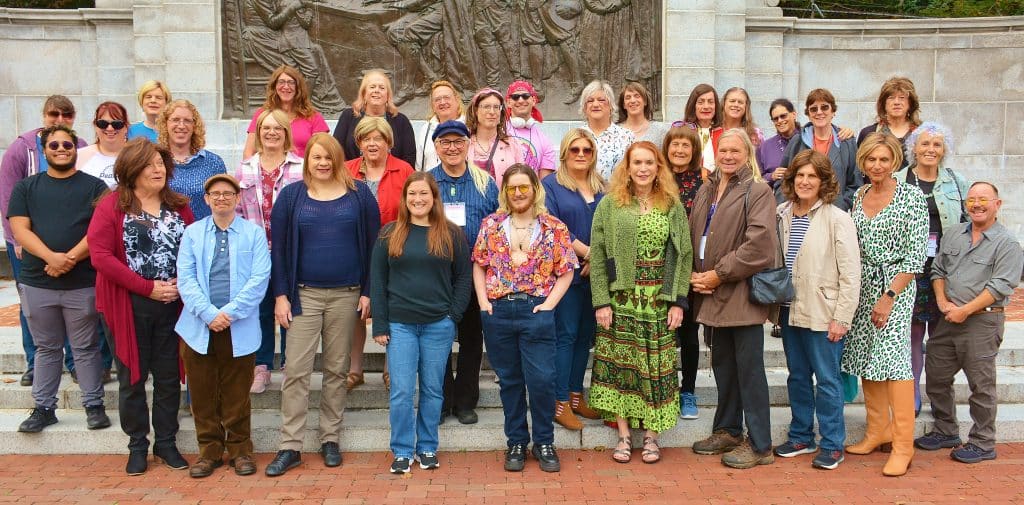
Photos: Dan McKeon
It was this that prompted Denny to found her own nonprofit, the American Educational Gender Informational Service (A.E.G.I.S.) catapulting her into a lifetime of trans activism and eventually leading her to Provincetown for the annual Fantasia Fair conference—now TransWeek (more on the rebrand shortly)—an event she would play a key role in from the nineties onward to today as the week celebrates 50 years.
But there’s a problem. Out of all of the diverse events that happen in Provincetown, TransWeek seems to puzzle people the most. There seem to be a lot of questions about what this event is and who it’s for—and frankly, the real history is complicated.
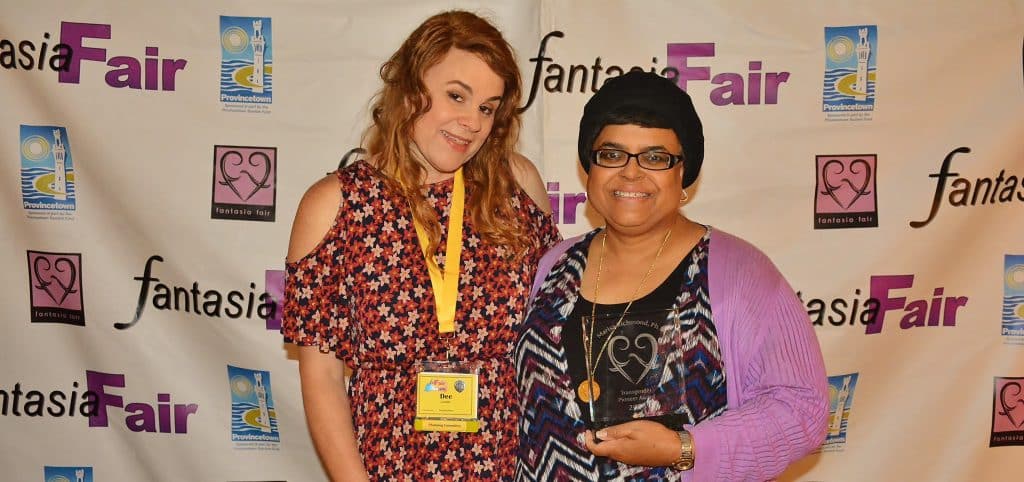
Photo: Dan McKeon
As Denny points out, the umbrella term “transgender” did not come to mean what it means now until the mid-nineties. Instead, the early attendees of the event called themselves many things: transsexuals, transvestites, androgynes, and, perhaps most perplexingly, crossdressers. “Trans people.. were largely trapped in terminology that was bestowed upon us by sexologists in the late 1800s and early 1900s” says Denny.
For much of its long history, TransWeek has had a reputation of being rather separate from the broader Provincetown community, despite its explicit focus on queer issues. “A lot of people in town didn’t realize that we were transgender,” Denny says. Many attendees did actually identify as heterosexual crossdressing men, and some no doubt still do. Until very recently, some may have even lacked the vocabulary to identify as anything else. The conference’s former name of Fantasia Fair also implied something of a fantasy, a fleeting moment of feminine exploration as opposed to real daily lives, real queer identities, real experiences.
This misunderstanding reared its head earlier this year, when the Visitor Services Board voted to decrease grant funding for TransWeek from the requested $4500 to $3500 (compared to $4000 in 2023). “I have trouble with this event…,” said board member Harrison Fish in a recording of the meeting, “It’s been called TransWeek for three or four years now and they have yet to do anything to include trans people beyond [their] association with what I would say it was initially started for, which was crossdressers.”
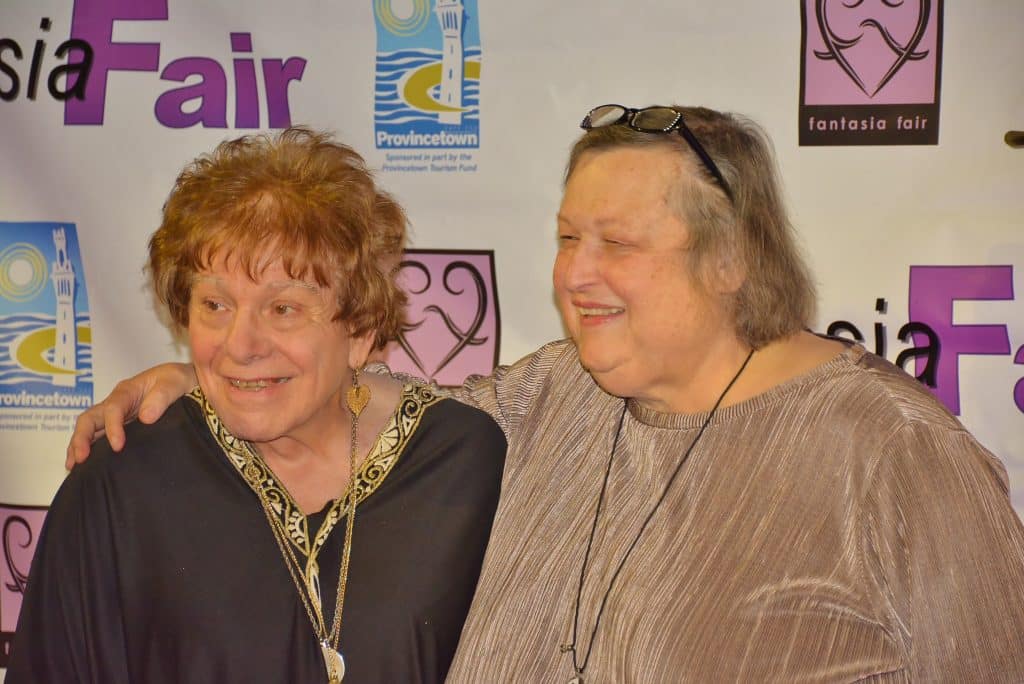
Photo: Dan McKeon
Citing low reported attendance rates and a failure to “cater to trans people,” Fish claimed that TransWeek was “damaging to [Provincetown’s] brand.” Denny responded in an extensive letter a few months later saying, “It seems Mr. Fish has no idea who we are and what we are about… Quite frankly, we and our attendees are queer as f–k.” Fish apologized for his comments at the V.S.B.’s August 13th meeting with Denny present, saying, “I do want to apologize if any of my statements were offensive… Since you’ve brought this up I’ve done a lot of personal soul-searching [and] a lot of research about the history of Fantasia Fair, as well as Transgender Week.” V.S.B. chair Regina Cassidy also thanked Denny for bringing the issue to attention, stressing the need for the board to work on making their evaluation process “more objective.”
This conversation underscores a key misunderstanding about TransWeek. As Denny points out, she and many other attendees have been identifying under the trans umbrella as long as they have been coming to the conference—including its founder Ariadne Kane who has long identified as an androgyne and bisexual. While someattendees are indeed heterosexual crossdressers, it’s clear that the history of this event is far more varied than that.
In celebrating its 50th year as the longest continuing transgender event in the U.S., the event boasts a vibrant history that has been well-documented by its committed volunteer staff. The TransWeek website contains a treasure trove of programs from years past, dating as far back as 1977. In between ads from recognizable sponsors that still do business in Provincetown to this day, these old programs are chock-full of beautiful historic photographs from years past, as well as descriptions of the many workshops and events that have been offered.
Notably, programs from the early nineties and onward nearly always contain serious discussions of explicitly transgenderissues. The 1996 program, for example, includes multiple workshops and seminars dealing with gender diversity with a strikingly modern approach, as well as a talk titled “The Politics of Transgenderism,” featuring legendary transgender activist and writer Leslie Feinberg. The same is true today. Among other events, Denny is participating in a talk alongside Carolyn Wolf-Gould and Jamison Green discussing their new collaborative book, A History of Transgender Medicine in the United States, which comes out this February.
TransWeek is a fragile hotbed of a queer history—no surprise, given how long it’s been around, which itself is impressive. “It’s a miracle that we’ve survived,” says Denny. The event relies primarily on volunteers, and importantly, requests a relatively small amount of money from the V.S.B. compared to other Provincetown events. Nonetheless, this annual gathering has persevered for half a century. But there are concerns as to its future. Denny stresses the need for a “succession plan” for the current volunteer leadership of TransWeek. She also advocates for continuing to expand the event, which can be cost-prohibitive, to more people. She encourages those in town who are curious to come experience the magic of the event without registering—in other words, “just show up.” This practice is growing, and is likely contributing to a further diversification of the theme week.
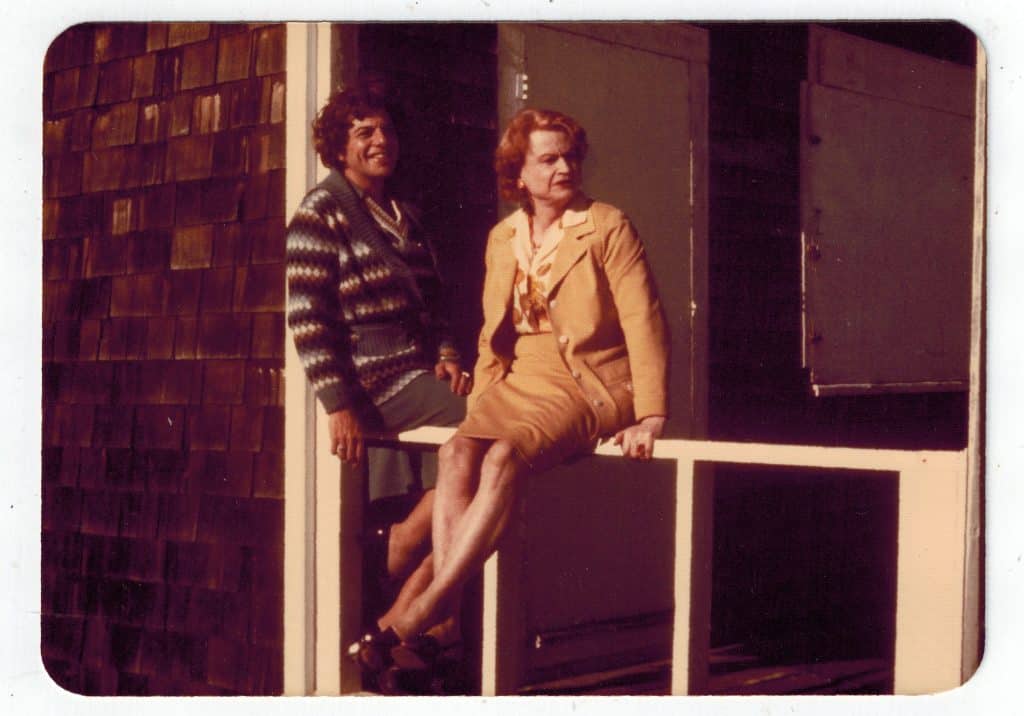
Courtesy of Dallas Denny
Denny hopes that after five decades, TransWeek will start to operate similarly to other theme weeks throughout town. The event is in a precarious position, and in this political climate, it might be needed more than ever. But if folks like Denny have kept TransWeek alive for this long, it’s hard to imagine that legacy ending now.
For more information about TransWeek, including a full schedule of events, visit transweek.org.

